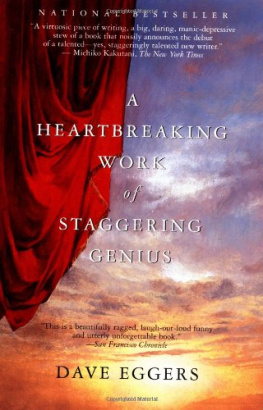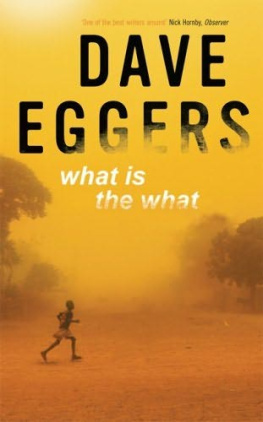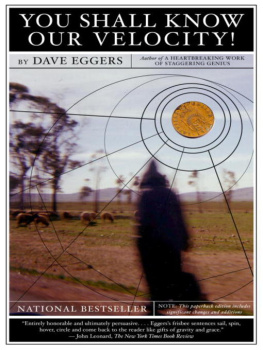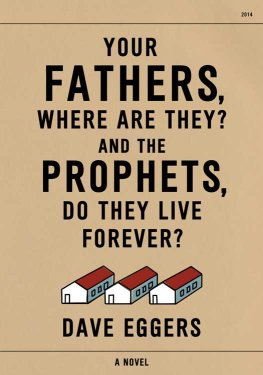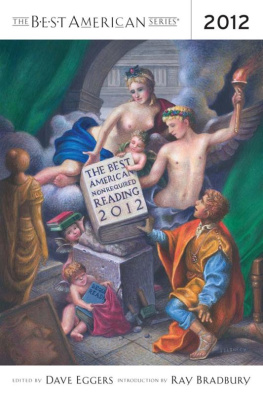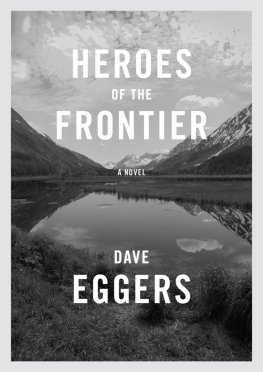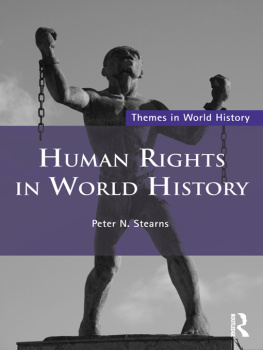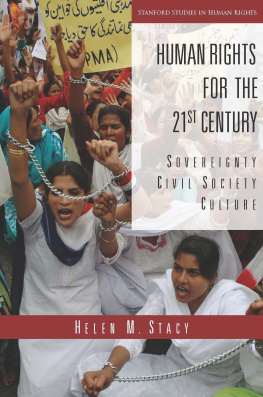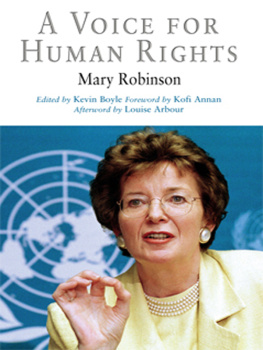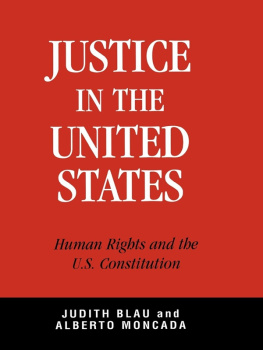THE VOICE OF WITNESS READER


For more information about McSweeneys, see www.mcsweeneys.net
For more information about Voice of Witness, see www.voiceofwitness.org
Copyright 2015 McSweeneys and Voice of Witness
Illustrations by Julien Lallemand
All rights reserved, including right of reproduction in whole or part in any form.
McSweeneys and colophon are registered trademarks of McSweeneys Publishing.
ISBN: 978-1-940450-83-4
2 4 6 8 10 9 7 5 3 1
VOICE OF WITNESS
Voice of Witness (VOW) is a non-profit dedicated to fostering a more nuanced, empathy-based understanding of contemporary human rights crises. We do this by amplifying the voices of men and women most closely affected by injustice in our oral history book series, and by providing curricular and training support to educators and invested communities. Visit www.voiceofwitness.org for more information.
EXECUTIVE DIRECTOR & EXECUTIVE EDITOR: Mimi Lok
EDITOR: Dave Eggers
MANAGING EDITOR: Luke Gerwe
EDUCATION PROGRAM DIRECTOR: Cliff Mayotte
EDUCATION PROGRAM ASSOCIATE: Claire Kiefer
CO-FOUNDERS
DAVE EGGERS
Founding editor, Voice of Witness; co-founder of 826 National; founder of McSweeneys Publishing
LOLA VOLLEN
Founding editor, Voice of Witness; founder & Executive Director, The Life After Exoneration Program
MIMI LOK
Co-founder, Executive Director & Executive Editor, Voice of Witness
VOICE OF WITNESS BOARD OF DIRECTORS
MIMI LOK
Co-founder, Executive Director & Executive Editor, Voice of Witness
JILL STAUFFER
Assistant Professor of Philosophy; Director of Peace, Justice, and Human Rights Concentration, Haverford College
KRISTINE LEJA
Senior Development Director, Habitat for Humanity, Greater San Francisco
RAJASVINI BHANSALI
Executive Director, International Development Exchange (IDEX)
HOLLY MUOZ
Musician & songwriter; Co-founder of the Mid-Continent Oceanographic Institute
IPEK S. BURNETT
Author; depth psychologist
CONTENTS
This started in Sudan, in 2003. Valentino Achak Deng and I had traveled from the U.S. to his hometown of Marial Bai, in the Bahr al-Ghazal region of what is now South Sudan. During the twenty-year civil war between the north and south of Sudan, he and thousands of young boys and girls had fled the attacks of militias known as the murahaleen. With this group, known as the Lost Boys, Valentino had walked over a thousand miles through war-ravaged country to reach the relative safety of a refugee camp in Ethiopia. He spent two years there and later ten more years at Kakuma, a camp in northwest Kenya. Finally, in 2001, the United States resettled Valentino and thousands of the so-called Lost Boys and Girls, who were by then young men and women, in various parts of the U.S. Valentino was sent to Atlanta, and we met a few years later. He had asked me to write his biography, and to that end, we thought we should get back to Marial Bai. He had not been there in seventeen years.
Valentino and I boarded an old Russian plane and sat in the cargo hold, and after four stops where we landed on dirt airstrips and grain and bicycles were unloaded, we finally landed in his home town. He was reunited with his family, amid much celebration and many tears.
While we were in Marial Bai, Valentino and I spoke to many dozens of people about their lives, about their experiences during the civil war, which was then in the middle of a cease-fire. With the help of Save the Children, an NGO that helped reclaim and repatriate abductees, we were able to speak to three women who during the conflict had been abducted by the murahaleen. Theyd been taken as children and had been sold as war bounty, held against their will for as long as ten years. One of the women had borne children by her captor; when she was freed from bondage, she was not allowed to take them with her. She and the other women we spoke to had recently returned to Marial Bai, but because they had been abducted at such a young age, they spoke none of the local language, Dinka. During their captivity, they had been made to forget their mother tongue, had been taught Arabic and made to accept new names and roles. We listened to their stories, astonished and horrified that this all had happened in the 1990s. Crimes and practices most of the world assumed were no longer possiblethe abduction and slavery women and childrenall had happened on a large scale during the Sudanese civil war.
Though Valentino and I knew there was much work ahead to put his own story on paper, we made a pact that we would find a way to get the stories of the women told, too. One of the established issues in the civil war in Sudan was a marked lack of reliable information coming from the conflict. Because the country was and is the least-developed nation in Africa, and because at the time there were no cellular phones, no electrical grid, few roads or services, there was spotty journalistic coverage of the war, and unconscionable atrocities were thus more possible.
When I got back to the U.S., I walked around with the faces and stories of the women from Marial Bai in my head. I looked in books and online for any record of stories like theirs, and found the information was scarce, and detailed narratives were nonexistent. There were a few exit interviews conducted by NGOs, but these accounts were very briefsometimes as short as one paragraph. Making heard the stories of the women Id met seemed a task uniquely suited to oral history.
At the time, oral history was on my mind. Studs Terkel, a hero of mine growing up in Chicago, had recently released Hope Dies Last, a collection of oral histories about 9/11. With that book Terkel had again demonstrated the power of a well-curated collection of first-person narrativesand the simple and central importance of listening to those who lived history in order to understand history. Terkel had been putting masterful collections together for yearsfrom The Good War, his complicated exploration of World War II, to Working, his exploration of the lives of the employed, underemployed, and unemployed in the United States. He was, and remains, the person best able to bring oral history to a large, mainstream audience.
With Terkel as inspiration, I imagined a series of books that would use oral history to record and amplify the voices of the unheardand as these things do, my hopes for the series leaped far ahead of any practical notions. It seemed that in addition to the book of womens voices from Sudan, there should be a book of voices from Sierra Leone, a book of narratives from Chechnya, a book from the former Yugoslavia. It would be a series devoted to illuminating human rights crises around the world, and naturally I embodied the typical well-meaning American in looking abroad, first, for instances of the human spirit being compromised.
That was until a chance meeting at an event honoring Terkel himself. In late 2003, Terkel was at the University of California, Berkeley, for an onstage interview. And though he was ninety-one years old, he was as sharp and funny and passionate as everhe even wore his signature outfit, a red-checked shirt, a bow tie, and red socks. After the event, as the audience was milling in the lobby, I met Dr. Lola Vollen, and she and I began talking about the power of oral history, and in the course of conversation I mentioned the series I had in mind.
She was intrigued, but wondered why such a series had to start abroad. What about human rights issues here in the U.S.? Shed been working with the wrongfully convicted and exonerated in the U.S., and found their plight woefully underreported. We see stories in the newspaper about a man or women being freed after ten, twenty years in prison, and we believe that thats the end of the story. But there is so much more, she said. To fully understand the scope of the issue of wrongful incarceration and re-entry, we need to hear from the people who have experienced thiswe need their stories.
Next page

